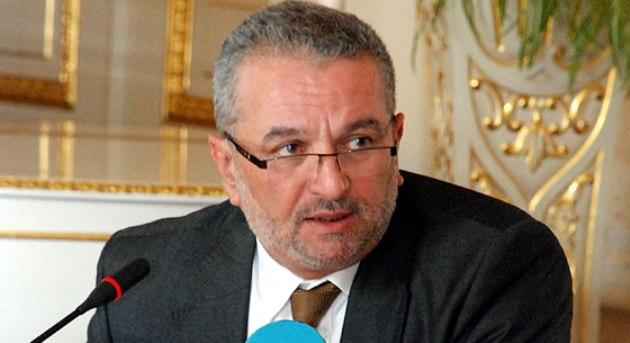Sociologist says Czech Republic is creating two states, an impoverished north and a wealthy center and south

Sociologist Ivan Gabal says the Czech Republic is now beginning to look like two states in one. The center and the south of the country are prospering, while the north is worried about poverty.
Gabal raised the hypothesis when commenting on the results of a new analysis of socially excluded localities in the country. According to that analysis, the number of ghettos has grown from 310 in 2006 to 606 today.
A large proportion of impoverished places are concentrated in the northern part of the republic. One of the main causes for the deterioration in their situations is, according to experts, a bad education system.
"We are looking at the picture for all of Czech society. We have two states here – in the central and southern part of the country there is great economic dynamism and rising living standards, while in the northern part there is poverty and structural problems," said Gabal, who is also an MP for the Christian Democrats.
The analysis of social exclusion was first created in 2006 and then again today for the Czech Labor and Social Affairs Ministry by Gabal’s company, GAC. The MP pointed out that his agency won the commission for the new research in 2013, before he entered politics.
Gabal says these ghettos are becoming more dispersed and their numbers are growing. Regions with structural problems are experiencing strain.
Social exclusion is not just an "ethnic problem", but is transforming into a problem of general poverty. The number of ghettos where most inhabitants are not Romani is rising.
According to the lead author of the analysis, Karel Čada, the boundaries of the ghettos are dissolving. "It is no longer so easy to say where a socially excluded locality begins and ends. They are blending in with the surrounding environment," Čada said.
In his view this is especially applicable to regions such as the Frýdlant area or Osoblažsko. He sees education as the "prime mover" of the path to improvement.
Čada believes the education system is not managing to get children from excluded localities to continue their studies so they can find better jobs in the future and raise themselves up. Gabal also believes the school system should be the "main vehicle" for change.
Children from the ghettos take on the life model of their parents. "They fall into the same situation, if not a worse one, they have worse educations than their parents did. This is an anti-industrialized economic model, it’s the model of a developing country," the sociologist points out.
However, Gabal says he has seen a difference over the last nine years in the approach taken by towns and villages toward this issue. They are no longer doing their best to evict people in need away from their territories, but are seeking solutions.
Gabal said he considers the Czech Government Agency for Social Inclusion to be a qualified partner for local authorities in this regard. Čada said the analysis shows that the state of affairs has improved in those places where the Agency either has worked or is now working.
The examples were given of the towns of Kadaň, Krásná Lípa (Šluknov district) and Obrnice. However, Czech Labor and Social Affairs Minister Michaela Marksová (ČSSD) has said she believes the "legislative environment is not ideal" for improving the situation.
"There are many communities that are managing to get advice and are focusing on this issue. Many other communities, however, have also ignored the fact that they even have an excluded locality. Those are the ones that complain the most and send petitions to the central Government," she said.
The flow of EU financing in years to come should be directed according to the results of this analysis. Measures funded should concern, for example, preschoolers.
The Labor and Social Affairs Minister said groups preparing children for school should be created. Children’s clubs should also run for schoolchildren to spend free time in.
"These are easy to set up and don’t cost much. It’s a big sin of these municipalities, quite a wrongdoing against their children, if they fail to do this," the minister said, who also believes social housing must be introduced.